Chatfuel and Manychat are two leading chatbot-building platforms that can help you automate customer interactions across messaging platforms. But which should you use? Let’s compare each tool’s automation capabilities, ease of use, multichannel support, and AI-powered chatbot features to help you decide which platform best suits your business needs.
Here’s a quick Chatfuel vs Manychat comparison:
| Feature | Chatfuel | Manychat |
|---|---|---|
| Best for | Businesses focusing on automating conversations on the Meta platform: Facebook, Instagram, and WhatsAppNative website chat integration | Businesses aiming for omnichannel marketing automation across Facebook, WhatsApp, Instagram, Telegram, TikTok, email, and SMS (no website integration) |
| Industry fit | Suitable for small- to medium-sized businesses prioritizing Meta platform engagement | Suitable for e-commerce, marketing agencies, and customer service teams using multiple messaging channels |
| Scalability | Scalable with customizable templates and in-built AI features, though you’ll require additional tools for broader channel support | Highly scalable with robust automation features and integration, accommodating your business as you expand your customer engagement strategies |
| Core functionality | Visual flow builder Keyword-based automation Integrates with Messenger, Instagram, WhatsApp, and website chat | User-friendly drag-and-drop interface Advanced automation workflows Supports Meta-based and non-Meta-based platforms |
| AI and automation | Features Fuely AI for intent detection Uses Fuely AI to set rules for your AI agents to determine how they handle chats Offers built-in ChatGPT integration from OpenAI (no extra setup) | Uses AI to design automation Analyzes intent using AI Manages specific workflow segments autonomously |
What is Chatfuel?
Chatfuel is a no-code chatbot-building platform for automating business communications on Facebook, Instagram, WhatsApp, and business websites. Launched in 2015, Chatfuel has seen a meteoric rise to become one of the largest no-code chatbot platforms with over 7 million users.
As Meta’s official partner, Chatfuel is integrated into Facebook Messenger, Instagram, and WhatsApp. It offers a suite of features to enhance customer engagement, streamline sales processes, and provide instant customer support without requiring technical expertise.
AI-powered automation
Chatfuel’s AI automation lets you build intelligent, human-like chatbots using built-in ChatGPT from OpenAI and their proprietary Fuely AI. You can create bots for tasks like lead qualification, appointment booking, answering FAQs, and product recommendations.
Omnichannel support
Since Chatfuel is Meta’s official partner, your business can use the platform to deploy chatbots across multiple Meta-based platforms:
- Facebook Messenger
- Business website
You don’t have to jump back and forth between social platforms answering the same questions. Instead, you can offer consistent customer experiences from one central dashboard to save time and keep your messaging unified.
Visual flow builder
You don’t need to write code or have technical expertise to create a chatbot. You’ll use a drag-and-drop interface to build custom conversation flows in minutes. It’s so intuitive that anyone on your team can create smart, engaging flows.
Prebuilt templates
Chatfuel offers over 30 ready-made templates to help you build chatbots fast. You can pick a template, customize it, and publish your chatbot across platforms without starting from scratch.
CRM and analytics integration
Chatfuel is a powerhouse in data analysis. Your business can integrate Chatfuel bots with tools like Google Sheets, Zapier, Stripe, Shopify, and more to manage contacts, segment audiences, track performance, streamline workflow, and automate tasks. You’ll also get a built-in customer relationship management (CRM) feature to help you organize data and make informed decisions.
Live chat and human handoff
When your chatbot encounters a complex customer query, Chatfuel makes it easy for your customers to escalate issues to a live agent. Your support team can step in to offer the help the customer needs without delays.
What is Manychat?
Manychat is a no-code chat automation platform that helps you manage customer communication across social media platforms, SMS, and email. Unlike Chatfuel, which is deeply tied to Meta platforms, Manychat offers native SMS, Telegram, TikTok, and email support, allowing you to reach customers beyond Meta-based messaging apps for a truly multichannel experience. While Manychat lets you deploy chatbots across more channels than Chatfuel, it doesn’t offer a built-in website chatbot feature.
With around 1.5 million users across 170 countries and reputable clients like The New York Times, Yahoo, and Nike, Manychat is a viable Chatfuel alternative. The platform offers business features to automate conversations, nurture leads, and drive sales.
Omnichannel messaging
Like Chatfuel, Manychat lets you automate business communication on Instagram, Facebook Messenger, and WhatsApp. But what sets Manychat apart is the built-in support for SMS, Telegram, email, and TikTok. You won’t need third-party AI chatbot tools to run comprehensive cross-channel campaigns from one dashboard.
AI-powered automation
Manychat doesn’t offer built-in ChatGPT. However, you’ll get AI features and smart conditional logic to
- Automate replies
- Qualify leads
- Personalize messages
- Guide users through custom conversation flows
If you want advanced AI capabilities, you must use an application programming interface (API) to connect to third-party tools like OpenAI.
Visual flow builder
Similar to Chatfuel, the Manychat platform offers an intuitive drag-and-drop interface. You can design AI chatbots and map out how customers interact with them without any coding knowledge.
CRM and analytics integration
You’ll also get built-in tools to manage customer relationships. Manychat allows you to tag users, segment audiences, track interactions, assign lead scores, and set follow-up actions. The platform can also integrate with analytics and third-party tools, like Google Sheets and Zapier, to help you monitor performance and refine your automation strategies.
Live chat and human handoff
With Manychat, your customers can switch from automated responses to live agents when their questions exceed your bot’s capabilities. You can set triggers to guide these transitions so your team can step in at the right moment to offer human support.
Who should use Chatfuel vs Manychat?
Due to differences in platform focus and features, Chatfuel and Manychat suit different needs.
Target audience for Chatfuel
Chatfuel’s deep integration with Meta platforms and powerful AI features make it perfect for
- Businesses heavily invested in Facebook, Instagram, and WhatsApp marketing
- E-commerce brands looking for an AI-powered chatbot to handle sales, product recommendations, customer support, and lead qualifications on Meta platforms and the business website
- Companies prioritizing advanced automation and omnichannel presence within Meta’s ecosystem, such as marketing agencies managing multiple clients’ chatbots
For the right business, the tight Meta integration and advanced AI features simplify campaign management and boost customer engagement. It also reduces the need for multiple third-party tools to make chatbot creation and management more efficient.
Target audience for Manychat
Manychat is a good fit for businesses looking to go beyond Meta and engage customers across a broader range of channels, such as
- Small- to medium-sized businesses that need an easy-to-use platform for multichannel marketing, including SMS, email, TikTok, Telegram, and Meta-based social platforms
- Organizations that prioritize direct customer engagement and lead nurturing across multiple channels beyond Meta platforms
- Marketers and agencies who seek versatile automation tools that support SMS and email alongside Facebook Messenger, Instagram, and WhatsApp
Manychat is a good fit for these groups because it offers a flexible, user-friendly platform with strong omnichannel messaging capabilities. Businesses can connect with customers on their preferred channel while supporting powerful marketing automation without having to deal with heavy technical demands.
Key features of Chatfuel
What are the most essential features of Chatfuel?
1. Chatfuel’s Chatbot
The Chatfuel platform provides all the essential elements to build a chatbot without writing code. You get over 30 templates, plus building blocks like triggers to start conversations, actions to send or update data, and user attributes for storing customer information.
But of all Chatfuel chatbot elements, four stand out:
- Collect User Data: This feature lets your chatbot collect user information, like customer name, email, or product preference. You can use the information for targeted messaging, audience segmentation, personalized recommendations, or follow-ups. You can also use the data to prefill forms for smoother checkout and sign-up experiences, or sync with a CRM tool for deeper customer profiling and life cycle tracking.
- Conditions: With conditions, you can personalize conversations based on what a user says or the data you’ve collected. If someone is a returning customer, for example, the bot can greet them by name or skip the intro.
- Redirect to Flow or Blocks: Instead of creating long, repetitive scripts, Chatfuel lets you break your conversation flows into small parts. When needed, your chatbot can redirect the user to other chatbot conversations to simplify scalability. You can reuse conversations instead of duplicating content across your chatbot.
- Bot Cloning: If you’re a marketing agency, Chatfuel will let you clone entire bots and tweak only what you need. You can quickly create customized versions for different clients without starting from scratch to save time and maintain consistency across projects.
2. Chatfuel’s AI and NLP
The main highlight of Chatfuel AI and natural language processing (NLP) is the built-in ChatGPT integration that partly powers its NLP capabilities. The integration enables your bot to understand and respond to complex, human-like messages without needing you to script every possible reply.
You also get a Keyword Recognition feature so your bot can trigger specific actions based on customer input. For instance, if a user types “pricing” or “hours,” the bot can immediately respond with the right predefined information. More importantly, you can create AI agents to perform tasks like lead qualification, product recommendations, or appointment scheduling.
3. Chatfuel’s live chat
With Chatfuel, your business isn’t limited to automated responses. When customers need human support, the platform makes it easy to switch from bots to live agents. The handoff happens within the same chat, so there’s no disruption in the user experience.
4. Chatfuel’s messaging channels
You can build chatbots for Facebook Messenger, Instagram, and WhatsApp. However, you can’t merge contacts across channels unless you use third-party integration, like Zapier.
5. Chatfuel’s marketing tools
Chatfuel offers several marketing possibilities. You can create a broadcast to send a one-time message or set up message sequences to send a series of automated messages over time. The intuitive interface makes it easy to create campaigns and see the complete sequences of all the messages you want to send in one view.
Different supported platforms offer different marketing capabilities. On Facebook, you can
- Create Ref URLs that link users to specific chatbot flows
- Automatically reply to post comments
- Send one-time or recurring notifications
- Connect your Messenger chatbot to Facebook Ads
- Use sponsored Messages to reengage contacts
On Instagram, you can
- Auto-reply to comments on your posts
- Send DMs to users who mention your handle in their stories
Key features of Manychat
What are Manychat’s key features?
1. Manychat’s chatbot
Like Chatfuel, Manychat offers all the essential elements to build and visualize your chatbot in a drag-and-drop interface. And you also get features like Conditions that let you tailor each conversation to individual contacts and improve the user experience of your chatbot.
But one outstanding element of Manychat is its Start Automation, which lets you trigger existing flows instead of recreating the same messages across different parts of your bot. This element makes it easier to maintain your chatbot, reduce errors, and keep conversations consistent across the user journey.
2. Manychat’s AI
Manychat has several AI features:
- Manychat Keywords: The keyword function allows you to set specific words to trigger an automation. Your chatbot will automatically know what to do or say if a customer types a set keyword.
- AI Intents: Besides reacting to keywords, the Intent tool helps your bot understand the intent behind what users type. If a user enters, “I need help with an order,” your bot can figure out they need support, even if they don’t include the word “support.”
- AI Step: This feature lets you deploy agents that respond to user messages in a more human-like manner. It enables your bot to grasp the context and handle more complex, natural conversations using NLP.
- AI Flow Builder Assistant: If building chatbot flow feels overwhelming, the AI Flow Builder Assistant can help you plan your conversation steps by suggesting what to say and how to structure it based on what your bot has to do. You just tell it your goals, and it suggests messages, questions, and actions your bot can use.
- AI Text Improver: With the Text Improver, you give your bot a set of text, and Manychat will rewrite it to achieve a different goal. It can change the tone or translate it into another language.
3. Manychat’s live chat
Like Chatfuel, you get built-in live chat features that let your team step in when automation isn’t enough. Your support team can respond directly from the Manychat dashboard or the mobile app, making it easy to chat on the go.
4. Manychat’s channels
Manychat lets you publish chatbots on Facebook Messenger, Instagram, WhatsApp, TikTok, Telegram, and SMS. What’s more, you can use the platform to send emails and manage email campaigns. Unlike Chatfuel, your customers can have a complete omnichannel chatbot experience because you’re able to merge contacts across channels without the need for a third-party tool.
5. Manychat’s Growth Tools
What sets Manychat apart as a Chatfuel alternative is its Growth Tools, a suite of features to attract and convert subscribers across various channels.
- QR code: You can generate QR codes that direct users to your bot when scanned. This feature boosts offline marketing efforts, such as print advertisements or in-store promotions, to help you bridge the gap between offline and online engagement.
- Website widget: Manychat lets you create customizable widgets for your website, such as pop-ups, slide-ins, or embedded forms. With these widgets, you can prompt visitors to subscribe to your chatbot, sign up for your newsletter, or receive special offers.
- Social media trigger: You can set up triggers based on user interactions on social platforms. For instance, when someone comments on your post, your chatbot can automatically send them a message to initiate a conversation and encourage further engagement.
- Landing page: You can create a landing page in Manychat to encourage visitors to interact with your chatbot. Customize each page for a specific campaign to simplify tracking and optimize your marketing efforts.
- Broadcasts, sequences, and rules: Start conversations using broadcasts, sequences, and rules. With broadcasts, you can send mass messages to your contacts. Alternatively, you can send a series of messages with a specified time in between. With rules, you can automate an action when an event happens. For example, when a customer books an appointment, the system can automatically send a reminder the day before.
Shared features of Chatfuel and Manychat
While the platforms are quite different at their core, they have several overlapping features that make them strong contenders for organizations looking to engage, support, and convert users through chat.
1. Drag-and-drop flow builder
Both platforms use a drag-and-drop interface so you can build and organize chatbot conversations without coding knowledge. Anyone on your team can create a bot and automate flows.
2. Omnichannel support for Meta platforms
Both Chatfuel and Manychat allow you to deploy chatbots on Facebook Messenger, Instagram, and WhatsApp. And you can automate and manage business communication across Meta platforms from one interface.
3. Broadcasts and sequences
You can send one-time mass messages or set up automated follow-ups in both platforms. These capabilities are useful for lead nurturing, reminders, promotions, and reengaging inactive users.
4. Live chat handoff
Both platforms provide a built-in live chat that lets a human take over a conversation from the bot when necessary. Your support team can offer personal support if the automation reaches its limit.
5. AI and NLP capabilities
You’ll get some sort of AI and NLP capabilities on Chatfuel and Manychat. Chatfuel has ChatGPT integration and NLP triggers, while Manychat offers tools like Keywords, AI Intents, and AI Flow Builder Assistant to create intelligent, flexible interactions.
What makes each tool unique?
The main difference between Chatfuel and Manychat is their core focus. Chatfuel excels in business communication automation and powerful AI-driven chatbot features on Meta platforms. In contrast, Manychat offers a broader range of messaging channels and a superior marketing toolset to help you capture and engage leads more easily across platforms.
Chatfuel
1. Built-in ChatGPT integration
Chatfuel comes with native ChatGPT integration, which enables your bot to generate human-like replies. Manychat does not offer this feature. You must connect OpenAI via a third-party tool, like Zapier or Make.
2. Deep Meta ecosystem integration
Chatfuel is deeply embedded in the Meta ecosystem. You’ll get extensive support for Meta-specific marketing tools, like recurring notifications, one-time messages, and post comment triggers. While Manychat supports all Meta platforms, it isn’t as tightly integrated, especially with features like WhatsApp marketing.
3. Bot cloning for agencies
With Chatfuel, you can clone an entire bot. You’ll appreciate this feature if you’re an agency that needs to deploy similar chatbots across multiple client accounts. You can quickly create customized chatbot versions without starting each from scratch to save you time and remain consistent. Manychat does not have a built-in cloning tool, though you can manually replicate flows or use templates as a workaround.
4. Website chatbot
Chatfuel allows you to install a bot directly on your site. You won’t get this feature on Manychat, so you’ll have to use third-party tools or code a custom web integration to enable chatbot functionality on your website.
Manychat
1. Multichannel messaging beyond Meta
On top of Meta platforms, Manychat allows you to deploy chatbots on additional channels, like SMS, email, Telegram, and TikTok, all from one platform. You won’t need third-party tools to extend the automation of business communication to non-Meta platforms.
2. Built-in growth tools
Manychat offers native lead generation features, like opt-in widgets, pop-ups, landing pages, QR codes, and Messenger Ref URL, in one place. Chatfuel doesn’t provide these tools as an integrated suite. To achieve similar functionality, you’ll need to rely on third-party tools or set up manual workarounds.
3. Manychat Pixel for website conversation
Manychat offers a small code called Pixel for tracking website conversions driven by chatbot interactions. It tracks what site visitors do after interacting with your chatbot. For example, you can monitor if someone makes a purchase, signs up, views a product, or engages in other behaviors without relying on third-party analytics tools.
Side-by-side comparison of key aspects
Is Chatfuel a viable Manychat alternative? To help you select the best chatbot software, consider a direct comparison of key aspects of the two tools.
| Key aspect | Chatfuel | Manychat |
|---|---|---|
| AI and automation | Has built-in ChatGPT for advanced NLP Supports AI agents for lead qualification, product recommendations, and scheduling Offers conditions, user attributes, and keyword recognition Great if you’re looking for an AI-powered experience without heavy scripting | Includes AI Steps for building conversational logic Helps you structure automations faster with AI Flow Builder Assistant Offers keyword triggers but requires more manual setup for NLP-like responses |
| Multi-channel support | Focused exclusively on the Meta platform: Facebook Messenger, Instagram, and WhatsApp Excellent if you focus on marketing on the Meta ecosystem | Supports Messenger, Instagram, WhatsApp, SMS, email, Telegram, and TikTok More flexible for multiplatform communication strategies |
| E-commerce and lead generation | Can collect user data and use product blocks Lacks native lead gen widgets (needs manual setup or third-party tools) | Has built-in Growth Tools: landing pages, pop-ups, widgets, QR codes, Messenger Ref URLs More marketer-friendly for capturing leads across channels |
| Integrations and ecosystem | Deep native integration with Meta APIs Third-party tools like Google Sheets, CRM tools, etc., require Zapier or Make | Direct integrations with Shopify, Mailchimp, Google Sheets, Klaviyo, HubSpot, and more Easier setup for nontechnical users |
| Pricing and scalability | Seven-day free trial Business plan starts at $23.99 per month Enterprise plan starts at $300 per month | Free for life Pro starts at $15 per month Elite plan pricing depends on business needs |
Pricing and plans
For many people, pricing is a big factor when choosing an AI chatbot tool. Your tool needs to return a good ROI.
Chatfuel pricing and plans
Chatfuel doesn’t have a free plan but offers a seven-day trial period for its Business plan that starts at $23.99 per month. Here’s what you can expect from the Business plan.
| Features | Detail |
|---|---|
| Channels | Facebook Messenger, Instagram, WhatsApp |
| Automation | Chatbots with ChatGPT integration, keyword-based triggers, and reengagement messages |
| Live chat | Shared inbox, mobile app, agent assignment |
| Contact management | Import/export contacts, audience segmentation |
| Integrations | Google Sheets, Zapier, JSON API |
If you plan to deploy chatbots at scale, you can opt for Chatfuel’s Enterprise plans that start at $300 per month. You’ll get all the Business plan features plus a personal account manager, 10 free hours of bot-building services, and priority support.
Manychat pricing and plans
Manychat offers a free-for-life plan that lets you test the service before committing to it financially. If you want to take advantage of Manychat’s full capabilities, you’ll need at least a Pro plan that starts at $15 per month and unlocks premium features.
Here is a quick overview of what each Manychat plan offers:
| Manychat plan | Pricing | What you get |
|---|---|---|
| Free | $0 per month | Up to 1,000 contacts Instagram, Facebook, and TikTok channels Unlimited custom flow Basic Growth Tools access 10 customer tags One live chat seat |
| Pro | Starts at $15 per month | Unlimited contacts, but the price scales with the number of contacts Instagram, Facebook, WhatsApp, SMS, email, TikTok chatbots Unlimited custom flows Unlimited Growth Tools and keywords Unlimited tags, custom fields, and advanced segments Manychat analytics and insight tools |
| Elite | Custom | Everything in the Pro plan Dedicated onboarding Strategic recommendations Priority support Guided experience |
Overall comparison table
To help you compare Chatfuel and Manychat at a glance, here’s a side-by-side breakdown of their pricing, AI features, and security.
| Aspect | Chatfuel | Manychat |
|---|---|---|
| Pricing | Free seven-day trial Starts at $23.99 per month and scales by conversations Enterprise plan starts at $300 per month with extra support | Free plan Pro plan starts at $15 per month and scales with contacts Premium custom pricing for enterprises |
| AI Features | Built-in ChatGPT for NLP understanding AI-driven automations with conditions and user attributes AI agents for lead qualification and product recommendations | AI Flow Builder Assistant to suggest conversation paths AI text improvement tool AI intents and keyword triggers for automation |
| Security | Data encrypted in transit and at rest Role-based access control for team members Follows Facebook platform security standards | Data encrypted in transit and at rest Two-factor authentication for accounts Role-based access control and audit logs |
How Jotform AI Agents enhance chatbot and customer engagement
Whether using Chatfuel or Manychat, Jotform AI Agents can boost your customer engagement efforts with automated solutions for lead generation, customer interactions, and chatbot-powered data collection.
Key benefits of Jotform AI Agents for your chatbot strategy
Integrate Jotform AI Agents into your chatbot workflows to
- Drive natural conversations: Use AI-powered conversational forms to capture user data effortlessly while keeping interactions smooth and engaging in Chatfuel or Manychat bots.
- Automate customer engagement: Let smart AI handle real-time customer replies to free your team for more complex issues and deliver faster support.
- Collect data everywhere: Gather valuable information seamlessly across chatbots, email, web platforms, and social media channels without jumping from one platform to another to simplify personalization and improve overall engagement.
- Trigger smart actions: Set up custom workflows that automatically respond to user input by launching targeted chatbot sequences or follow-ups.
Using an integration tool, like Zapier, you can connect Jotform AI Agents with Chatfuel or Manychat to let the data you collect with forms flow into your chatbot platform and enhance automation. Contact us today to discuss how Jotform AI Agents can help you streamline customer interactions and drive better engagement.
This article is for marketers, business owners, and customer support teams who want to choose the best chatbot platform to automate conversations and improve customer engagement.





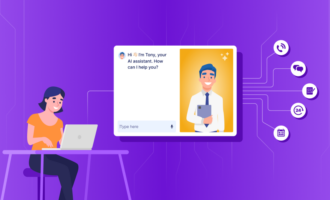
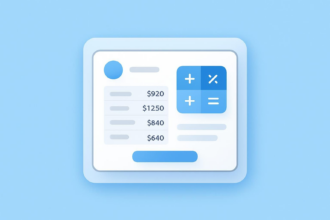




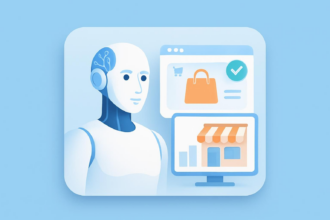

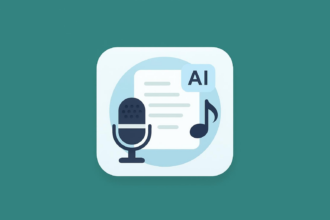

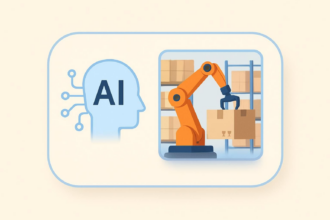






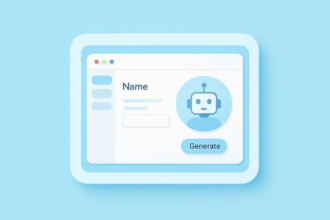





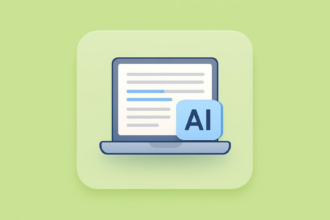







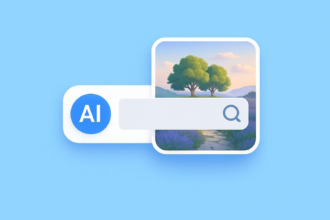







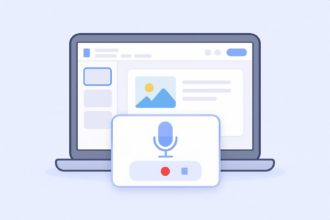
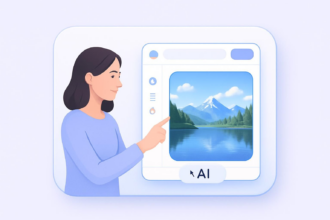
















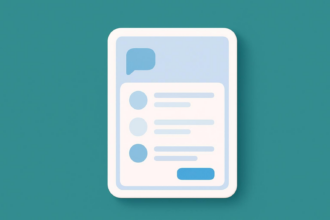




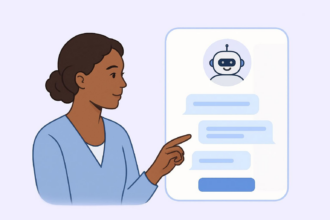

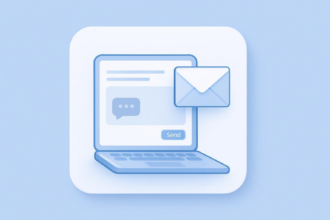



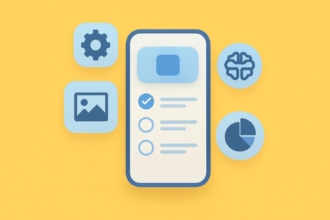

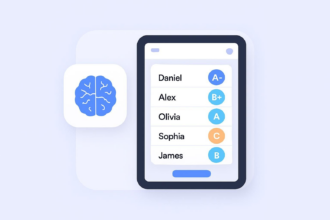




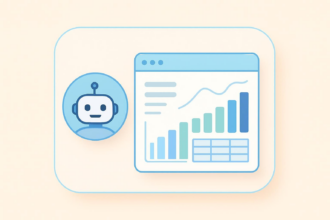



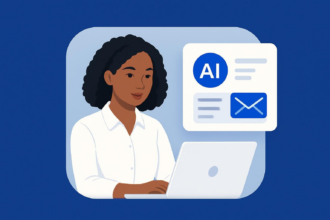




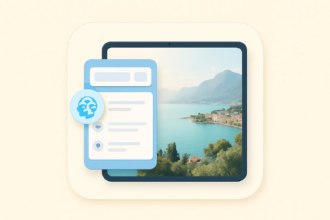













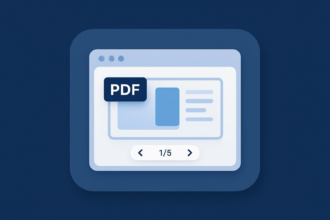

Send Comment: